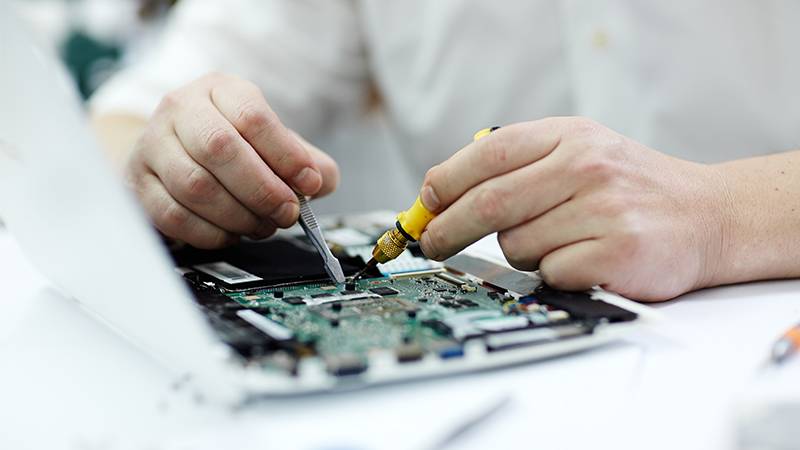In an era where disposable goods and fast consumption seem to dominate, a quiet revolution is taking place in cities like Berlin, London, and New York. Community-driven repair clinics are becoming increasingly popular, offering a sustainable alternative to the pervasive “throwaway” culture. These clinics, found in libraries, schools, and local government offices, are not only extending the life of various products but are also knitting communities closer together through the shared goal of reducing waste.
Elizabeth Chamberlain, director of sustainability at iFixit, points out the significant rise in repair cafes, highlighting their role in filling the gap left by the dwindling independent repair market. In California, the Fixit Clinic initiative, spearheaded by Peter Mui in 2009, has become a beacon for the right-to-repair movement, offering free assistance in repairing a range of items, from electronics to clothing. This initiative has blossomed into a nationwide movement, with 200 clinics hosted across the US in 2023 alone.
Similarly, the Repair Cafe, founded by Dutch journalist Martine Postma in 2009, has grown into a global network with over 3,000 cafes offering free repair services with the help of 45,240 skilled volunteers. These efforts underscore a communal drive towards sustainability, skill-building, and fostering a sense of self-sufficiency among participants.
Businesses have many options to meet and support this movement. They can foster an ecosystem of repair by supporting right to repair legislation; designing for modularity, durability and standardization; and providing accessible parts and repair manuals. Companies can also send their repair experts to local events to share best-practices.
The implications of these grassroots efforts extend far into the realms of business and corporate sustainability. As fast fashion and e-commerce platforms push for higher consumption of low-quality goods, repair clinics propose a different path—one that emphasizes durability, modularity, and standardization in product design. This ethos not only challenges businesses to support the right to repair but also to actively participate in fostering a culture of repair.
Companies have started to recognize the value in aligning with these initiatives, understanding that supporting repairability and sustainability can enhance their brand reputation and forge stronger customer connections. For instance, HP’s internal repair event in Boise, Idaho, sparked discussions about the repairability of its own products, demonstrating a corporate willingness to engage with and learn from the repair community, according to GreenBiz.These repair clinics do more than just fix broken items; they serve as hubs for community engagement, skill-sharing, and promoting a more sustainable and circular economy. By prioritizing repair over replacement, they offer a tangible counter-narrative to disposable culture, showing that with a little effort and community support, it’s possible to slow down consumption and make more environmentally friendly choices.
This movement’s growth signals a shift towards more sustainable consumption patterns and highlights the potential for businesses to play a significant role in supporting and promoting a circular economy. As repair clinics continue to spread, they not only offer practical solutions to everyday problems but also inspire a broader cultural shift towards sustainability and mindful consumption.
More inspiring green news similar to this:


